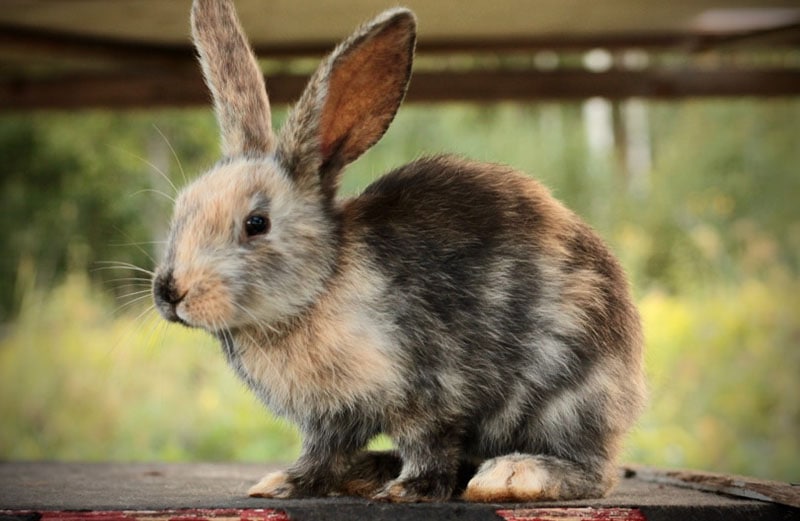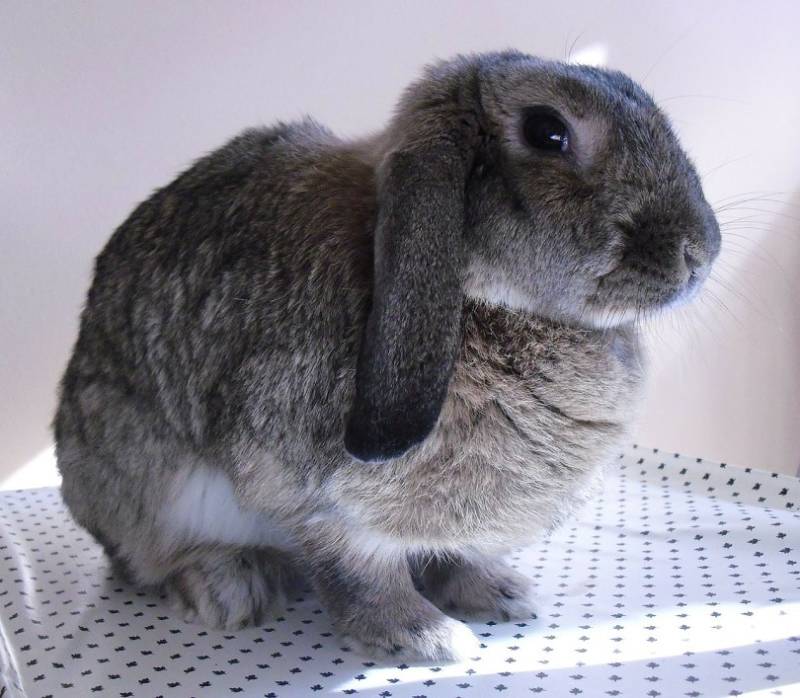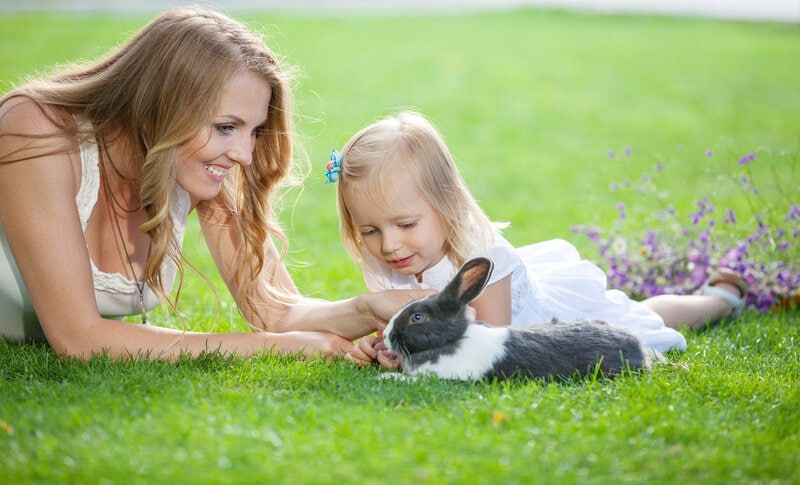Are Rabbits Good Pets? Pros and Cons Explained

Updated on
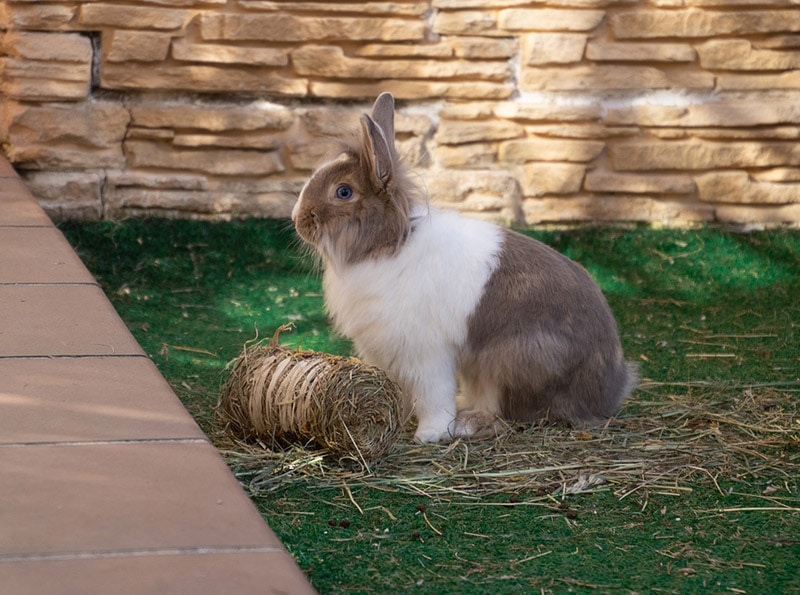
Rabbits are one of the most popular pet species in the world. They are loved for their cute looks and because they are relatively easy to care for. Owners can form a close bond with their rabbits, too, and many enjoy being handled, as long as they have experience with it from a young age. On the other hand, they do require daily exercise, which means time out of their hutch and while most rabbits are inexpensive to buy, the hutch and other equipment, as well as ongoing care costs, do add up over a 10-year lifetime.
Rabbits make great pets for some owners, but they aren’t the best choice for everybody. Read on for nine pros and cons of owning a pet rabbit and to see whether one is the right choice of pet for your circumstances.
The 9 Pet Rabbit Pros
1. They Are Quiet
Rabbits do make some noise. If you keep them indoors, you will likely hear them scurrying around their hutches and they do make a variety of noises, but most of them are soft and inoffensive noises that are easy to live with. Kept outdoors, rabbits rarely make enough noise to be heard in neighboring houses, either.
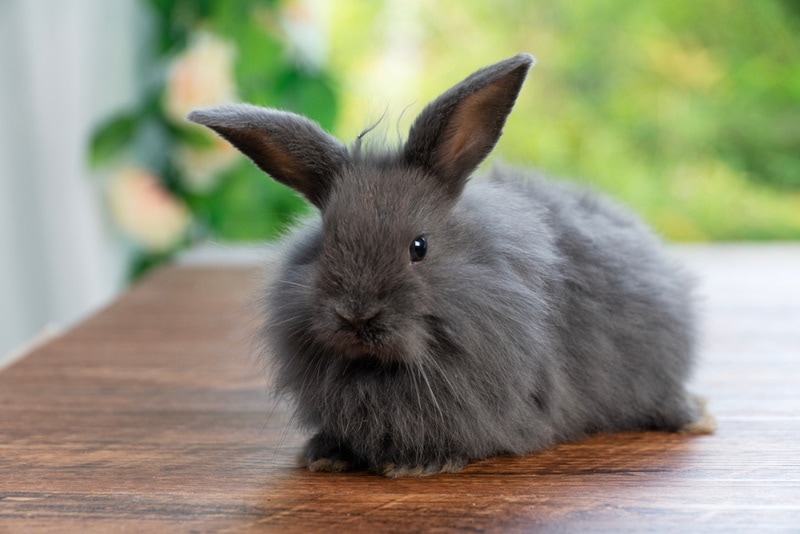
2. They Can Live Indoors
They don’t have to be kept outdoors. In fact, most rabbits would prefer to be kept indoors and they are safer and less likely to get ill. Keeping rabbits indoors does mean that you need an indoor hutch, and you will need to provide room to run around, although you can provide an outdoor run for use during good weather.
3. Rabbits Don’t Need Much Room
Whether you keep them indoors or outdoors, rabbits don’t need that much room. The amount of room required will depend on the breed and size of the rabbit, as well as the number you keep. It is recommended that you keep at least two rabbits together and that you provide a hutch of at least 3 x 2 x 1 meters (9 x 6 x 3 feet).
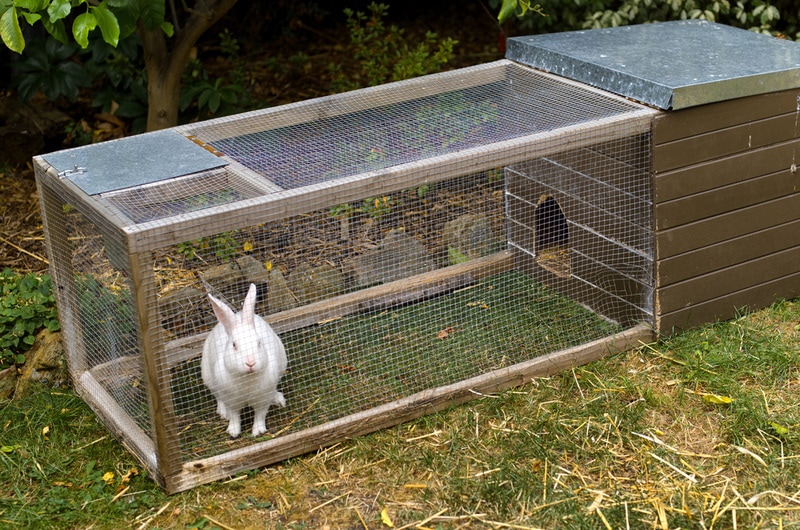
4. Rabbits Can Be Litter Trained
Because they are intelligent little animals and are actually quite clean animals, rabbits can be litter trained. You will often find that your rabbit pees and poops in one particular corner or area of its hutch. Litter training usually consists of putting a litter tray in this area. If the rabbit starts toileting somewhere else, move the tray. Be consistent and patient, and you should have litter-trained rabbits in very little time.
5. They Can Form a Bond with Their Owner
Every rabbit is different, but rabbits tend to be docile animals that will tolerate handling by their owner and family. To help ensure this is the case with your pet rabbits, you should start handling them when they are young so they get used to the sensation. Although yours may never want to be physically cuddled, it should become accustomed to spending time with you and may like to be picked up when you’re around.

6. They Are Intelligent
The intelligence of rabbits is such that it is not only possible to litter train them, but it may be possible to teach them some other basic commands. Use a clicker, reward with treats for the successful completion of a desired action, and be persistent with your training efforts.
7. Rabbits Live Up to 12 Years
Rabbits can live anywhere from 5 to 12 years, depending on the breed of rabbit and its general health and welfare. Ensure that yours has a good diet, is kept in a clean hutch with plenty of room, and avoid encounters with other animals like cats and dogs, and your rabbit could live a decade or longer.
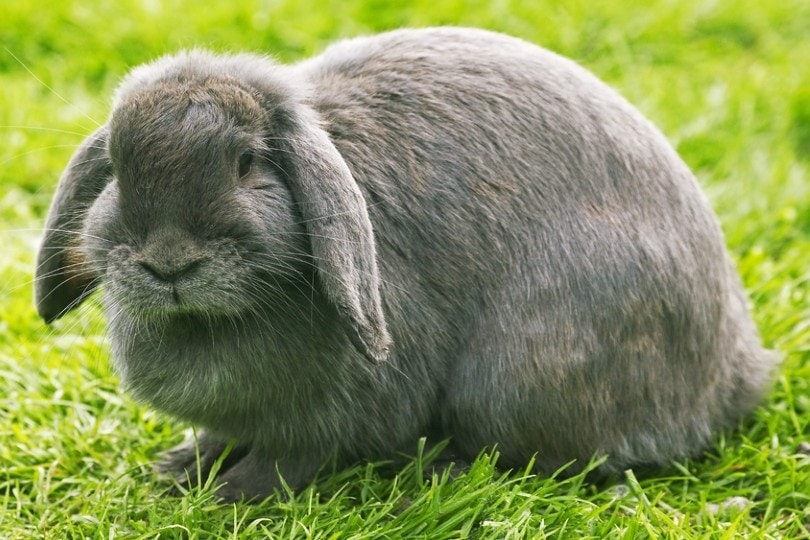
8. They Don’t Tend to Be Aggressive
Rabbits tend to be quite docile creatures. In the wild, if they feel threatened, they will try to escape rather than fight, and when startled some rabbits will simply freeze on the spot. They won’t usually try to bite or scratch people or other animals, which makes them a good choice for families with small children.
9. Rabbits Are Inexpensive to Buy
Some breeds can attract very high prices, but these prices are usually reserved for show breeds and rabbits with good breeding that includes award winners. For general pet rabbits, you can expect to pay less than $100 for one, and this amount will often get you two rabbits.
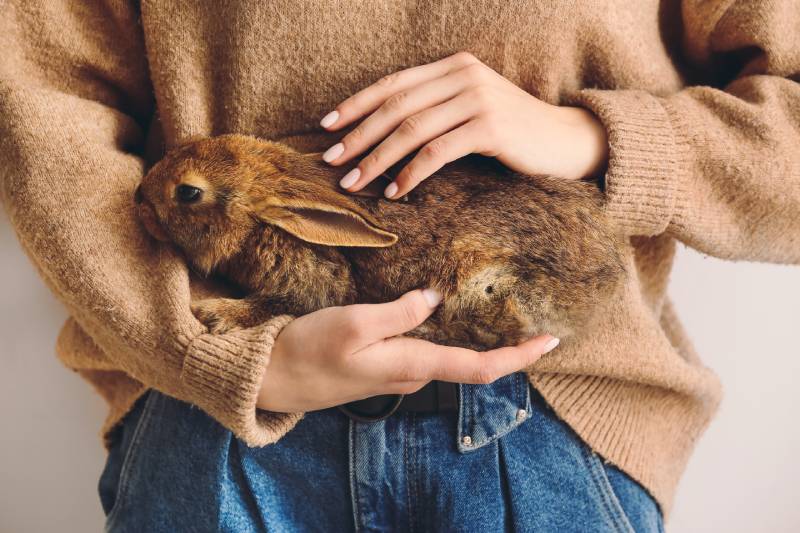
The 9 Pet Rabbit Cons
1. They Can Be Destructive
Rabbits not only enjoy chewing and scratching, but it is natural and necessary. Their teeth grow continuously, and they have sharp claws that need maintenance. Because of these natural features, rabbits do chew a lot and they will also scratch. This is why some wooden hutches end up with chewed sections and why you will need to rabbit-proof a room before letting your pet out for a run.
2. Rabbits Do Cost Money to Keep
Although rabbits are cheap to buy, their hutches and other equipment do cost money. Rabbits also need feeding and ongoing care, and these costs do add up. The hutch and run will likely cost more than the rabbits they house, and your monthly bills may total more than the rabbit initially cost, too.
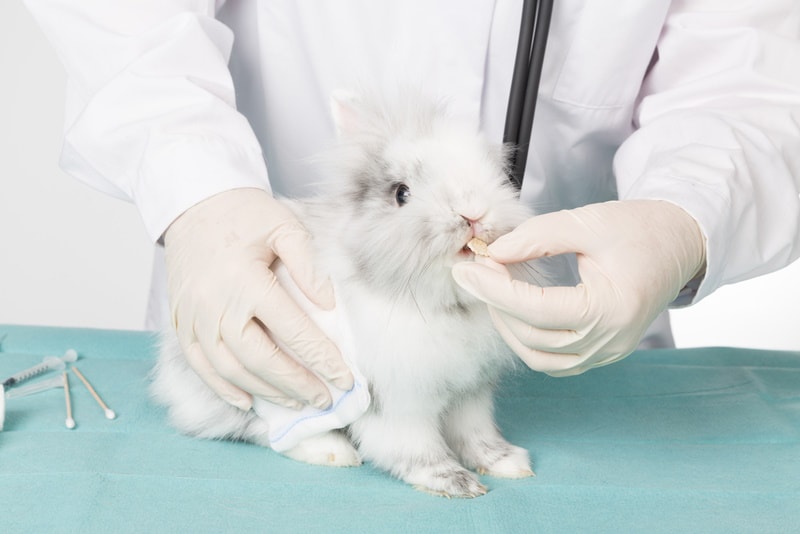
3. They Require Daily Exercise
Rabbits are active animals in the wild, and while yours might not need to escape cats, dogs, wolves, owls, and other threats, it will naturally need to stretch its legs and get exercise. When the weather permits, you can let your rabbit run in the garden, but you will need to ensure that the exercise area is well sectioned off to prevent the rabbit from getting away. During the rest of the year, you will need to provide some exercise space indoors.
4. They Are Social Animals
A solitary rabbit kept alone can become depressed and get ill, even if you provide lots of attention and offer plenty of time out of the hutch. Experts recommend keeping two rabbits, which typically means keeping a neutered male and a neutered female together. This means providing more space and it means spending twice as much on food and other ongoing costs.
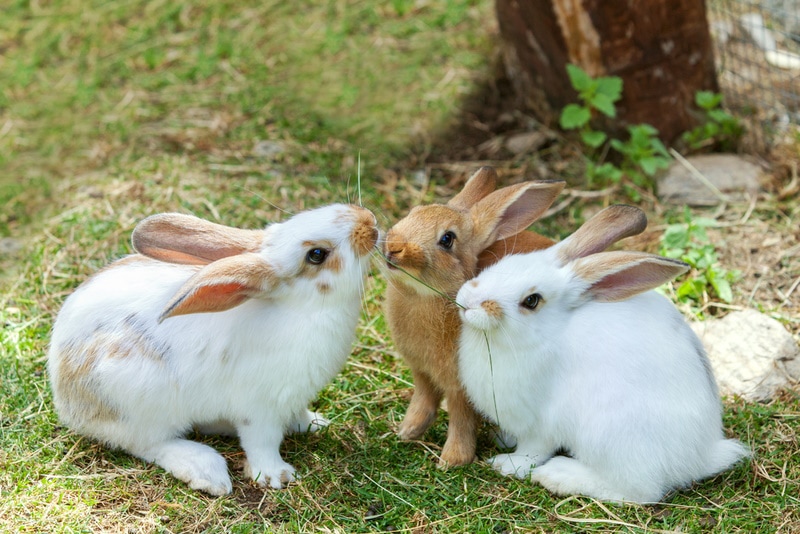
5. Rabbits Are Fast
If your rabbit escapes or gets out, you can expect it to be a real challenge to catch. Rabbits are very fast and incredibly nimble, usually more than capable of getting away from even the best-organized human family. Towels will help, and so too will food-based treats.
6. Rabbits Poop a Lot
Rabbits poop a lot. They digest food quickly so that they can get the energy they need from their diet and use it to get away from the many threats they face in the wild. And, while most rabbits can be litter trained, there are exceptions. This means that you could be faced with a lot of rabbit poop in a very short space of time, and it will need clearing up.
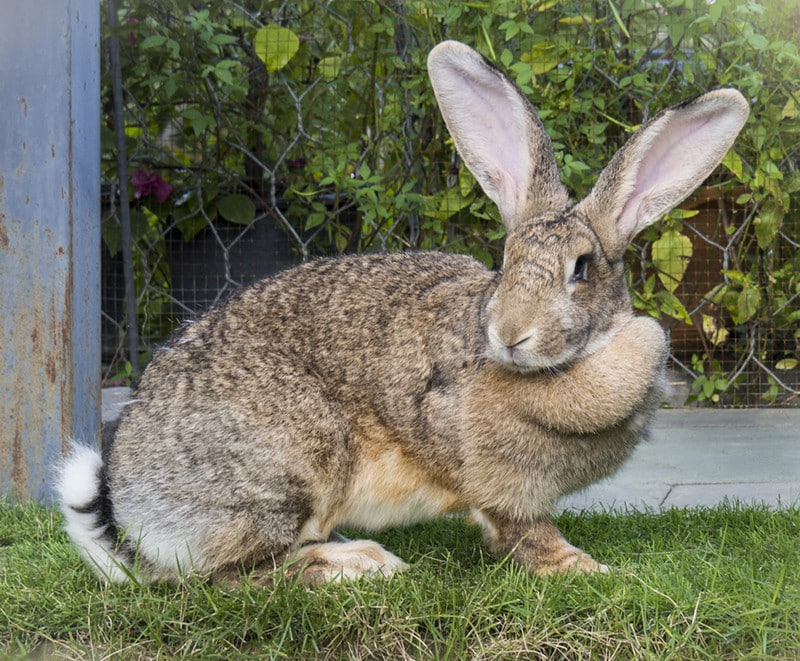
7. They Are Prone to Illnesses and Health Problems
Rabbits are not the hardiest of animals. They are prone to illnesses and diseases, as well as some general niggles and complaints. You should try and find a vet that has some experience with rabbits and ensure that you visit regularly. It might also be an idea to try and find a pet insurance policy to cover your pet rabbits.
8. Some Rabbits Develop Behavioral Problems
While many pet rabbits are docile and enjoy time with their humans, never raising a tooth or claw in anger, some do develop behavioral problems. This is especially true if the rabbit is not afforded enough time out of its cage and if it doesn’t get enough exercise.

9. They Are Prey Animals
Rabbits are prey animals. In your home, a rabbit can be a tempting piece of prey to cats and dogs. And outside the home, it is prey to just about anything of the same or larger size, even including some large birds and snakes. You will need to ensure that your rabbit is kept safe and secure, especially when it is getting its daily exercise in the garden.
Conclusion
Rabbits can make great pets. They are generally quite docile animals that can be litter trained, don’t require too much space, and enjoy the company of humans. They are also cheap to buy. However, they can be expensive to keep, and it is recommended that you keep two rabbits, which means that you will need to provide enough space and supplies for two. If you have the space and time, rabbits are a good addition to your home. If you lack either of these, they aren’t ideal pets.
Related read:
- How Smart Are Pet Rabbits? Smartest Breeds & FAQs
- How Long Can Rabbits Go Without Water? Vet-Approved Facts & FAQs
Featured Image Credit: Virg. B. R, Shutterstock


